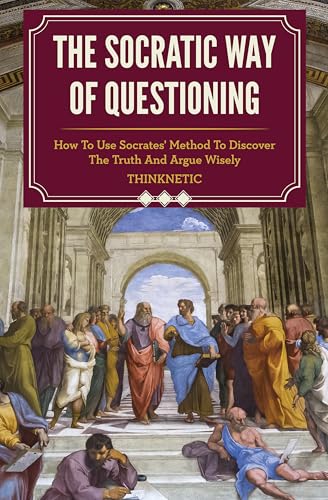
Think Again: How to Reason and Argue

why you believe what you do and whether those beliefs stand up to scrutiny. Stay attuned to your own thought processes. Being self-aware can prevent bias and ensure clarity. Take the time to dissect the relevance and applicability of certain arguments and ideas. This helps determine their real-world implications. Strive to identify, develop, and
... See moreNeuronswaves • Critical Thinking, Logic &Amp; Problem Solving
The Socratic Way Of Questioning: How To Use Socrates' Method To Discover The Truth And Argue Wisely (Critical Thinking & Logic Mastery)
amazon.com
